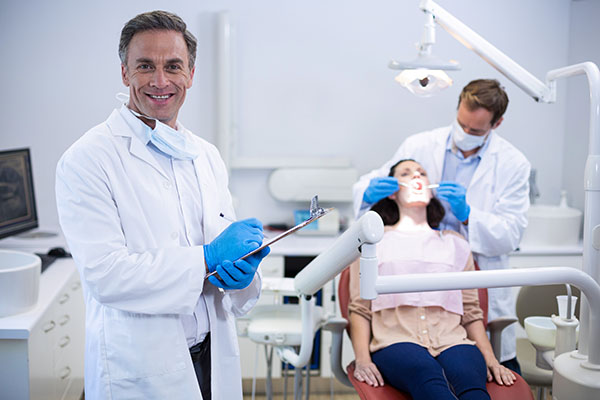The Importance of Oral Hygiene

Making excellent oral hygiene a habit is enough to avert most oral health diseases. Oral hygiene should be apart of your lifestyle and a frequent activity. A daily routine of oral care is necessary to clean the tooth of food bits or debris and plaque.
What are the consequences of poor oral hygiene?
- The primary result of poor oral care is tooth decay. When tooth decay does not receive immediate attention, it could worsen into tooth nerve infection, which causes unbearable pain. If left for long, the bones around the tooth will soon be affected, resulting in bone loss. In worse cases, you could suffer abscess, which may require the removal of the root canal or even the teeth.
- Another issue is gum disease, which can range from gingivitis and mild inflammation to severe periodontitis. If not treated early, it will cause loss of the bone surrounding the teeth, and ultimately teeth loss.
- Bad breath or halitosis is another common issue with people who have poor oral hygiene.
- Unknown to many people, poor oral hygiene is associated with diabetes, heart diseases, and complications during pregnancy. It is, therefore, necessary for people with cardiac conditions or diabetes to maintain strict oral hygiene. Couples preparing for pregnancy should also book an appointment with the dentist to resolve any possible dental issue. Maintaining proper oral health during pregnancy is necessary.
- Tooth loss in aged people makes it difficult to eat healthy meal courses, and a weak digestive system is a constraint for their overall health, causing health complications such as anemia.
- Young people without good oral hygiene may soon suffer a premature loss of teeth, degradation of the dental structure and ultimately malocclusion.
So how do we maintain good oral hygiene?
- Keeping your mouth clean and healthy is simple and straightforward. Experts recommend brushing twice daily using a soft or medium toothbrush with peanut-sized toothpaste. Brushing should be gentle on the teeth and not vigorous.
- Flossing should be done at least once per day.
- When brushing your teeth, you should also remember to clean your palate and tongue. Doing this before going to bed will help lessen the build-up of microorganism in the mouth.
- Once daily, wash your mouth with antimicrobial or mouthwash containing fluoride.
- Also, don’t forget to change your toothbrush every three months.
- Eat healthily, reducing the number of sugary foods and drinks. Aerated and sour beverages also do your teeth more harm than good. They erode your teeth and make it sensitive.
- At least once in six months, book an appointment with the dentist for a regular checkup and professional polishing and scaling of your teeth.
- Paying regular visits to your dentist when you detect any minor discomfort, discoloration, or inflammation will aid early detection of severe issues before they worsen. Your dentist will also be able to recommend precautions or practices for better oral health.
Final Note
Prevention, we know is better than cure. Simple routines like these eliminate potential oral health issues and consequently avert expensive dental procedures in the future.
Request a dental appointment here: http://dentalstudiocolleyville.com or call Dental Studio Colleyville at (817) 885-5188 for an appointment in our Colleyville dental office.
Recent Posts
Are you going to buy a new toothbrush and want to know what a general dentist recommends? Brushing your teeth at least twice a day is very important when it comes to practicing good oral hygiene. However, a lot of people use the wrong type of toothbrush on their teeth and end up damaging their…
When picking a toothbrush and toothpaste, there are many things that should be considered. Some people might even find themselves wondering if using a toothbrush with toothpaste does much more than other alternatives.The reality is: Toothpaste is an essential part of good oral hygiene. A quality toothpaste does a better job than other alternatives, like…
Regular dental check-ups are a vital part of maintaining and protecting oral health. These visits can prevent a problem before it occurs or help catch a problem early on when it is the most treatable. Dental check-ups aren’t something to dread but are a way to keep your teeth and gums healthy. Schedule an appointment…
Fluoride treatments are very important in preventative dental care. Every patient wants their dentist to provide them with all the necessary tools to keep their smile bright and white. You go to the dentist twice a year as recommended and brush and floss your teeth regularly.Doing your part in your oral care routine only goes…


